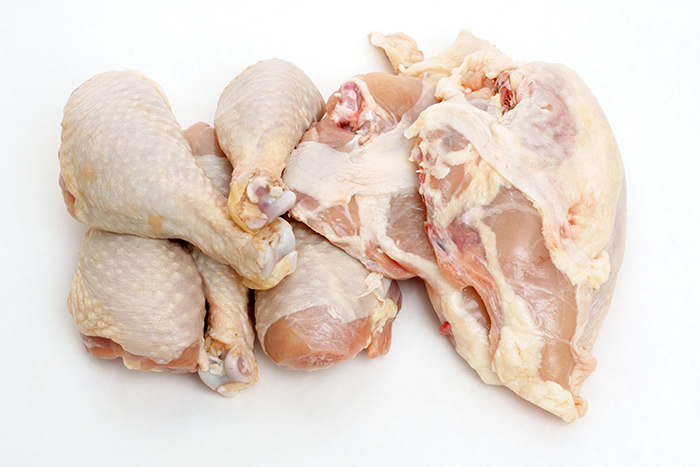In an NC State University study, one quarter of participants contaminated salad with raw chicken, highlighting the risks of not understanding hand washing, cleaning and sanitizing the kitchen, and washing poultry. The study was conducted to assess the impact of washing poultry on kitchen contamination, but found that participants who did not wash poultry still contaminated salad. The study was published in the International Association for Food Production.

Washing raw poultry is not recommended because the researchers thought that water from rinsing the chicken would splash and spread around the kitchen. This practice can also contaminate the kitchen sink, other foods, and other surfaces, which increase the risk of foodborne illness.
Ellen Shumaker, corresponding author of the study and an extension associate at North Carolina University said in a statement, “We wanted to know what effect an educational intervention would have on getting people to stop washing poultry before cooking, and what effect any resulting change in behavior might have on reducing contamination in the kitchen. We also wanted to get a better idea of how, if at all, washing poultry actually led to increased contamination in the kitchen.”
Researchers recruited 300 home cooks who said they washed poultry before cooking it. Food safety information was sent to 142 of the participants that outlined risk-reduction efforts. The remaining participants did not receive education.
All 300 participants were invited to test kitchens that were equipped with video cameras. They were asked to cook chicken thighs and prepare a salad. After preparing the thighs but before putting them in the oven, interviews were conducted. The participants were then sent back into the kitchen to cook the thighs, prepare the salad, and clean the kitchen as they would at home.
The kitchen was swabbed to identify contamination. The salad was also tested.
Ninety-three percent of participants who received the education did not wash the chicken, compared to 39% of participants who did not receive the intervention. But researchers were surprised to find that people who did and people who did not wash the chicken had similar levels of contamination in their salads.
Shumaker said, “We think the salad contamination stems from people doing a poor job of washing their hands after handling the raw chicken, and/or doing a poor job of sanitizing the sink and surrounding surfaces before rinsing or handling the salad, Regardless of whether people washed their chicken, the kitchen sinks became contaminated by the raw chicken, while there was relatively little contamination of nearby counters.”
It turns out the sink itself was contaminated, even when the chicken wasn’t being washed. Researchers think that the study demonstrates the need to focus on preventing contamination of sinks and emphasizing the importance of hand-washing and cleaning and sanitizing surfaces.
The paper was co-authored by Margaret Kirchner, a former graduate student at NC State; Lisa Shelley, a research scholar at NC State; Rebecca Goulter, a research associate at NC State; Lydia Goodson, a former research technician at NC State; Sheryl Cates, of RTI International; Christopher Bernstein, of the Consumer Financial Protection Bureau; and Aaron Lavallee, of the U.S. Department of Agriculture’s Food Safety and Inspection Service (FSIS).




